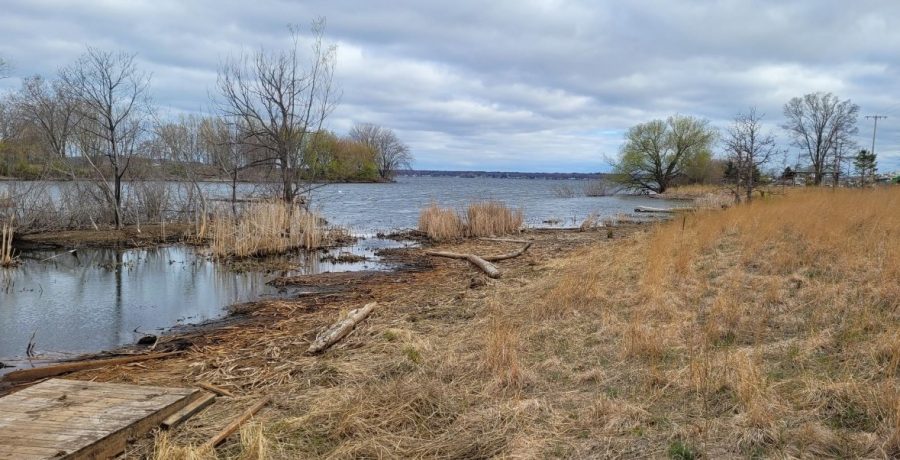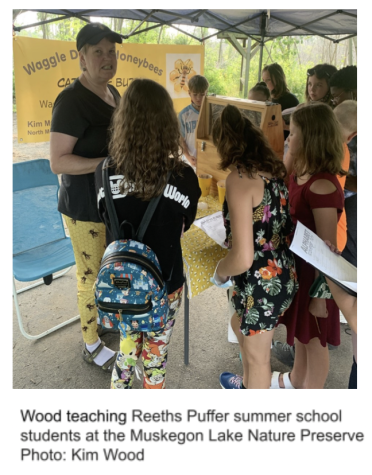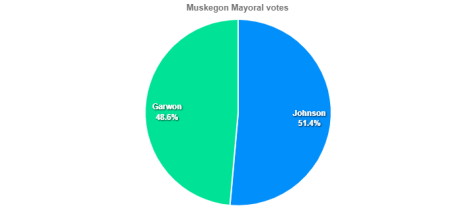Muskegon Lake Receives Significant Makeover via Volunteer Partnership
April 28, 2021
The Muskegon Lake Watershed Partnership has taken it upon themselves to restore much of the lake’s notable shoreline sites for almost 30 years. The volunteer, non-profit organization has shifted its attention to one of its most anticipated events of the year, the annual spring cleanup, with high expectations.
“I would like to see a shift in the culture where we value and understand the value of our natural resources to our quality of life and our local economy,” said Kathy Evans, Program Manager of the West Michigan Shoreline Regional Development Commission, which is helping coordinate the event. “I don’t know if the county residents or the next generation quite understand how much of a valuable resource [Muskegon Lake] is. [MLWP’s work] reflects in the quality of life for our residents and the increase of shoreline property value we have experienced.”
The partnership has restored a collective 24,703 linear ft. of shoreline since 2006 and 20 sites have been restored on Muskegon Lake since the program’s inception. Numerous projects have been put in place to prevent invasive species, protect native wildlife, and maintain plant life throughout the lake’s many diverse ecosystems.
“Making sure [the lakeshore] is always accessible not only to our tourists, but our citizens of Muskegon as well to continue accessing those areas for years to come is what’s most important to us,” said Samantha Jonas, Volunteer Team Leader for the MLWP and President of the Greater Muskegon area Junior Committee International. “Without the [MLWP] and without the ability to keep this lakefront clean, we would see a significant decrease in tourism. I want to make sure we are not only helping our tourism but that we are helping the environment and wildlife thrive.”
Muskegon Lake, throughout its history, has been the subject of much human utilization, whether it be from logging, industrial expansion, agriculture, or landfills. All of which have made a major impact on native plant and wildlife and have prevented the lake from performing its natural functions to its inhabitants. Muskegon Lake has been considered an area of concern (AOC) by an International Joint Commission of Great Lake States and Canadian Provinces since 1987.
“We just want to be able to create clean spaces for people to enjoy the water,” said Breanna Hansen, Volunteer and Vice President of the Greater Muskegon JCI. “A lot of both residents and tourists enjoy the waterways.”
The partnership has cleared roughly 30,000 lbs. of waste from the inland lake’s shoreline since its inception, and given the lake’s past, MLWP Chair Mark Evans has longed for the lake’s recreational side to be further exposed well before the idea of the partnership came to be.
“We would fish off the shoreline of Grand Trunk only to realize just how much waste had been thrown into the lake,” Evans explained. “Then in 1990, we figured enough was enough, and we banded together about a dozen people to clean up the shore. Not long after, the city began to get involved, and we soon had hundreds of people attending these annual events. Little did we know just how far it would go beyond just picking up garbage.”
The MLWP has cleared four beneficial use impairments or designations given by the International Joint Commission that represents environmental degradation, since 2011. These BUIs uplifted include beach closings, restrictions on drinking water, restrictions on dredging activities, and restrictions on fish and wildlife consumption.
“My husband and I moved here for the purpose of being close to the water,” said Hansen. “Then we fell in love with the community and its people. For me, I feel like giving back to the community and to Muskegon in general for the reasons it brought me and family to this area are why I do this.”






Patrick • Apr 29, 2021 at 10:33 am
Great read.